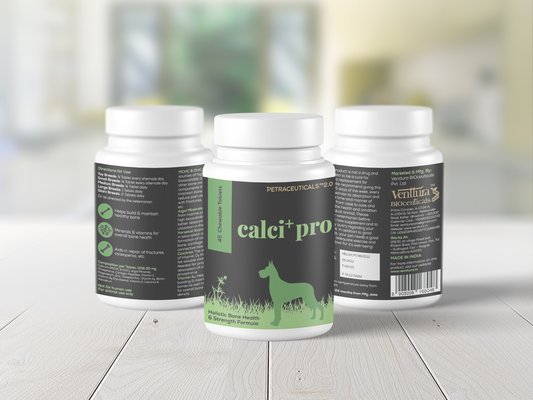Colostrum is the initial milk produced by female mammals during the first few days after giving birth, characterized by a unique nutrient composition. The primary function of this early milk is to offer immune protection to the newborn during its most vulnerable stage and to enhance its growth, development, and overall physiological performance. Furthermore, colostrum is essential for meeting the newborn's full nutritional needs, playing a critical role in both immediate survival and long-term health and development. Bovine colostrum (BC) provides several benefits compared to single-ingredient supplements, often being regarded as a comprehensive superfood [1]. It delivers vital elements such as proteins, fats, carbohydrates, and bioactive substances like immunoglobulins (Igs), cytokines, lactoferrin, and oligosaccharides, all of which are crucial for supporting immune function [2].
Composition of Bovine Colostrum
Proteins
Bovine colostrum (BC) has about 15% protein by weight, compared to only 3% protein in mature milk [3]. Whey protein, a type of water-soluble protein found in bovine colostrum, is high in essential amino acids and hence useful to dogs. Branch-chain amino acids (BCAAs), such as valine, leucine, and isoleucine, are especially significant among these amino acids.
Whey protein is well known for being capable to improve anti-inflammatory and anti-infection responses, as well as immunological modulation. It also helps to grow muscle mass, increase bone mineral density, and improve patients' mobility and activity levels [4].
Whey contains following bioactive components
· α-Lactalbumin exhibits antimicrobial and anti-inflammatory properties, enhancing its immune-supporting role [5] [6].
· β-Lactoglobulin has antioxidant and antimicrobial activity, helping prevent pathogen attachment and colonization [7] [8].
· Lactoferrin possesses antimicrobial, antiviral, antioxidant, and anti-inflammatory properties, while also modulating immune responses [9]. Additionally, LF has been shown to have anti-allergic effects
· Immunoglobulins (Igs) are essential components of BC that give immunity to newborn calves by passing on maternal antibodies. Bovine Igs have immunomodulatory, anti-inflammatory and antimicrobial properties. They inhibit pathogens from attaching to cells, activate immune cells for cellular and humoral immunity, modulate the gastrointestinal microbiota, and promote secretory IgA production [10].
· Cytokines are regulatory proteins that play an important role in immune activation and cell signaling.
Furthermore, whey protein contains a variety of growth factors that play important roles in biology, including epidermal growth factor, colony-stimulating factor, fibroblast growth factor, transforming growth factor and insulin-like growth factor [1]. BC includes bioactive enzymes and growth factors, such as insulin-like growth factors (IGF-1 and IGF-2), lactoperoxidase, trypsin inhibitor, and transforming growth factor-β (TGF-β) and lysozyme, which contribute to its biological activity. IGF-1 and IGF-2 stimulate cell growth, proliferation, and tissue healing [11]. Caseins account for 20-30% of BC's protein [4]. They also safeguard bioactive peptides like epidermal growth factor (EGF) and IGF-1 from enzymatic degradation. Studies have revealed that caseins support antimicrobial and immune-regulatory actions [2].
Carbohydrates
BC includes a variety of carbohydrates, including lactose, oligosaccharides, and nucleotide sugars. Lactose accounts for approximately 2.5% of total carbs in BC, and provides essential energy to infants. It has been demonstrated to modulate the immune system. Furthermore, BC has a lower lactose concentration than mature milk, which minimizes the risk of lactose intolerance [2]. Oligosaccharides are also beneficial to immunological health and as prebiotics, boosting beneficial gut bacteria and improving intestinal microbiome health [12].
Fats
Compared to mature milk, bovine colostrum (BC) has a greater fat content of about 7%. About two-thirds of the fat composition is made up of saturated fats, with monounsaturated (MUFA) and polyunsaturated (PUFA) fats making up the remaining portion [13]. Phospholipids offer anti-infective advantages by affecting pathogen adhesion and colonization, while oleic acid adds to its anti-inflammatory qualities [14].
Vitamins and Minerals
Bovine colostrum (BC) contains higher levels of vitamins and essential minerals compared to mature milk, providing both nutritional and immunological benefits. It is particularly rich in calcium, along with zinc, phosphorus, and iron [1].
It is generally accepted that the intestinal absorption of immunoglobulins from bovine colostrum is limited after the intestinal barrier closes around 16 hours post-birth in puppies [15]. However, research indicates that bovine colostrum still provides significant local benefits in the gut. Studies have shown its positive effects on conditions such as diarrhea, gut, immune health, skin damage, NSAID-induced damage, respiratory health, and much more, as reviewed below.
The Multifaceted Benefits of Bovine Colostrum
Supporting Gut and Immune Health in Growing Kitten
Throughout their first year of life, kittens go through a lot of unfamiliar and difficult situations (weaning, vaccination, rehoming, etc.). Their health may suffer as a result of these difficulties. Stress can cause changes in the gastrointestinal (GI) tract and weaken the immune system. It is not unexpected that the post-weaning phase is linked to an increased risk of infection, with the most common being parvovirus, herpesvirus, and calicivirus as well as GI distress. IgA is the main antibody produced by the gut’s immune system (gut-associated lymphoid tissue, GALT) and plays a crucial role in maintaining gut health. Secretory IgA, found in the mucosal secretions of the gut, helps block harmful antigens from entering the body and supports the growth of healthy gut bacteria. A study showed that kittens fed bovine colostrum had significantly higher IgA levels over time (P < 0.05). Increased IgA levels over time suggest that continuous feeding of bovine colostrum (BC) supports the development of growing kittens and may offer broader protection against pathogenic infections [16]. Another research study showed that dogs fed bovine colostrum (BC) had considerably greater levels of IgA by 40 weeks implying that BC supplementation increased GALT function, which provided superior protection against gut infections [17].
Stabilizing Gut Microbiota Under Stress
Stressful events, like rehousing or blood sampling, reduce gut microbiota stability in kittens. In a study conducted by Gore et al., 2021, it was found that kittens fed bovine colostrum (BC) had more stable microbiota compared to those on a control diet. Specifically, the similarity in the BC group before and after stress was 91.3%, while the control group showed only 65.0%. This suggests that BC-fed kittens may have better protection against harmful bacteria. Another study conducted on eighteen Beagle dogs concluded that bovine lactoferrin (bLF) supplementation increased monocytes, T cells, and cytotoxic T cells, enhanced immune cell proliferation, and reduced E. coli and Clostridium perfringens in faeces. bLF was found to affect immune responses and gut microbial populations in healthy adult dogs [18].
Stronger and Faster Immune Response to Vaccines
Vaccine responses are used to assess how well the immune system reacts to a vaccine. A strong and quick response typically indicates better protection against infection. BC-supplemented group of kittens had a faster and stronger immune response to the rabies vaccine, with significantly higher antibody levels by week 40. Vaccine responses are important biomarkers of immune function, indicating how well the body can fight infections. [16]. Another study found that dogs fed BC had a significant rise in specific anti-CDV IgG levels, indicating that BC supplementation improved their immune response to the canine distemper vaccine. This increased immune response may increase the CDV vaccine's efficacy in protecting dogs against CDV infections. It was concluded that diets enriched with bovine colostrum (BC) have a significant impact on the immune response in dogs [17].
Managing Diarrhea and Improving faecal quality
Diarrhea is a common issue in recently weaned puppies due to dietary changes, separation from their dam, and a developing immune system. These factors make puppies more susceptible to infections such as parvovirus, coronavirus, rotavirus, and bacterial pathogens like Escherichia coli. Bovine colostrum, rich in growth factors, immunoglobulins, and bioactive compounds, helps neutralize viruses, inhibit harmful bacteria, and support gut health. Studies show that colostrum supplementation improves fecal quality in puppies undergoing environmental and dietary changes, potentially reducing recurrent gastroenteritis and enhancing their overall vitality in early life [19].
Antibacterial and Anti-inflammatory Benefits
Bovine colostrum (BC) demonstrates significant antibacterial and anti-inflammatory properties, making it a valuable supplement for boosting the health of puppies and kittens. BC contains immunoglobulins and lactoferrins that help strengthen immunity and inhibit bacterial growth. A study showed that BC effectively suppressed the growth of harmful bacteria, including E. coli and S. aureus, and reduced inflammation in animal models [20].
Preventing Respiratory Diseases in Puppies and Kittens
Bovine colostrum supplementation (BCS) is known for its health benefits, including the prevention of upper respiratory tract infections (URTIs). A systematic review and meta-analysis in humans analyzed data from 445 participants across seven randomized controlled trials and found that BCS significantly reduced the risk of developing URTIs by 36% (Risk Ratio = 0.64; 95% Confidence Interval: 0.498–0.822; p < 0.001). While the study focuses on humans, these findings highlight the potential of bovine colostrum to support immune health, which could be beneficial for puppies and kittens in reducing the risk of respiratory diseases [21].
Skin Health and Regeneration
Bovine colostrum boosts immunological function and aids in skin regeneration. According to a research findings, colostrum promotes keratinocyte differentiation by controlling cell cycle proteins and elevating indicators such as filaggrin, keratin 1, and involucrin. It enhances stratification and the effectiveness of the skin barrier as well. These results imply that colostrum may be used to treat skin conditions involving impaired barrier function and differentiation [22]. By combating lesions, lactoferrin's anti-inflammatory and antibacterial qualities aid in the treatment of skin conditions like infections and allergic acne. By promoting fibroblasts to produce collagen and elastin, two proteins necessary for healthy skin tissue, it supports normal skin growth, antiaging, and DNA-RNA repair in conjunction with epidermal growth factor (EGF) and platelet-derived growth factor (PDGF), which are plentiful in colostrum [23]. A study by Murata et al. (2014) investigated the oral administration of bovine lactoferrin (Lf) and highlighted its protective role against skin damage[24].
Mitigating NSAID-Induced Gastrointestinal Damage
The most often prescribed medication, non-steroidal anti-inflammatory medications (NSAIDs), are used to treat the symptoms of degenerative joint illnesses, chronic inflammatory conditions, and acute pain . NSAIDs have been linked to intestinal and gastric problems, including peptic ulcers and damage to the small and large intestines. Because colostrum contains growth factors such α-IGF-1, β-IGF-1, transforming growth factor (TGF), and epidermal growth factors (EGF), some study indicates that it could be a potential solution. These growth factors have the ability to promote the GI tract's healing process [1].
Bone Health and Osteoporosis Prevention
A study on dietary bovine milk-derived exosomes indicated their potential to improve bone health in an osteoporosis-induced mouse model, suggesting that bovine colostrum exosomes could be used as a preventive measure against osteoporosis [2]. Further research has highlighted the effectiveness of cow colostrum in promoting bone regeneration, especially in osteoporosis treatment [25] [26].
Managing Allergies and Autoimmune Diseases
It has been demonstrated that LF possesses anti-allergic properties [2].
Allergy is classified as an immune system hypersensitivity condition. It happens when the immune system reacts improperly to innocuous substances. Colostrum contains proline-rich polypeptide (PRP), that regulates the thymus gland. PRP inhibits the overproduction of lymphocytes and T cells, as well as the symptoms of allergies and autoimmune diseases, such as pain, inflammation, and swelling. Additionally, PRP has been shown to alleviate or improve the symptoms of autoimmune conditions such as lupus, myasthenia gravis, rheumatoid arthritis, multiple sclerosis, and allergies [27].
Cancer
Numerous human cancer cell lines, including those from the oesophagus, colon, lung, breast, and ovary, have shown improvement when treated with BC supplements. Certain types of cancer can be effectively treated with specific BC components, such as alpha-lactalbumin, CLA, and lactoferrin. Malignant cells have been shown to undergo apoptosis in response to lactoferrin and lactalbumin [28]. It may be advantageous to use lactoferrin as an anticancer agent. Lactoferrin has been granted a patent due to its strong anticancer characteristics [27].
Conclusion
In summary, the multifaceted benefits of bovine colostrum—ranging from supporting gut and immune health to improving digestive function and managing allergies—highlight its invaluable role in the well-being of both canines and felines. With its wide range of protective and restorative properties, colostrum-based supplements can play a key role in enhancing pet's health.
At Venttura, we offer premium-quality colostrum-based supplements designed to provide pets with the nutritional support they need. Our scientifically researched formulations, such as Immuno+, Immuno+ Cat, and Lacto+, combine the natural benefits of bovine colostrum with carefully selected ingredients to ensure the highest standards of care. Choosing high-quality, scientifically backed supplements ensures optimal support for pet's overall health and well-being.
References
1. Playford, R.J.; Weiser, M.J. Bovine colostrum: Its constituents and uses. Nutrients 2021, 13, 265. https://doi.org/10.3390/nu13010265
2. Yu, P.; Satyaraj, E. Effect of Bovine Colostrum on Canine Immune Health. Animals 2025, 15, 185. https://doi.org/10.3390/ani15020185
3. Arslan, A.; Duman, H.; Kaplan, M.; Uzkuç, H.; Bayraktar, A.; Ertürk, M.; Alkan, M.; Frese, S.A.; Duar, R.M.; Henrick, B.M.; et al. Determining total protein and bioactive protein concentrations in bovine colostrum. J. Vis. Exp. 2021, 178, e63001. https://doi.org/10.3791/63001
4. Linehan, K.; Ross, R.P.; Stanton, C. Bovine colostrum for veterinary and human health applications: A critical review. Annu. Rev. Food Sci. Technol. 2023, 14, 387–410
https://doi.org/10.1146/annurev-food-060721-014650
5. Håkansson, A.; Svensson, M.; Mossberg, A.K.; Sabharwal, H.; Linse, S.; Lazou, I.; Lönnerdal, B.; Svanborg, C. A folding variant of alpha-lactalbumin with bactericidal activity against Streptococcus pneumoniae. Mol. Microbiol. 2000, 35, 589–600. https://doi.org/10.1046/j.1365-2958.2000.01728.x
6. Chatterton, D.E.; Nguyen, D.N.; Bering, S.B.; Sangild, P.T. Anti-inflammatory mechanisms of bioactive milk proteins in the intestine of newborns. Int. J. Biochem. Cell Biol. 2013, 45, 1730–1747. https://doi.org/10.1016/j.biocel.2013.04.028
7. Pan, Y.; Shiell, B.; Wan, J.; Coventry, M.J.; Michalski, W.P.; Leeb, A.; Roginski, H. The molecular characterization and antimicrobial properties of amidated bovine β-Lactoglobulin. Int. Dairy J. 2007, 17, 1450–1459. https://doi.org/10.1016/j.idairyj.2007.04.006
8. Oevermann, A.; Engels, M.; Thomas, U.; Pellegrini, A. The antiviral activity of naturally occurring proteins and their peptide fragments after chemical modification. Antivir. Res. 2003, 59, 23–33.
https://doi.org/10.1016/S0166-3542(03)00010-X
9. Legrand, D.; Pierce, A.; Elass, E.; Carpentier, M.; Mariller, C.; Mazurier, J. Lactoferrin structure and functions. Adv. Exp. Med. Biol. 2008, 606, 163–194.
https://doi.org/10.1007/978-0-387-74087-4_6
10. Ulfman, L.H.; Leusen, J.H.W.; Savelkoul, H.F.J.; Warner, J.O.; van Neerven, R.J.J. Effects of bovine immunoglobulins on immune function, allergy, and infection. Front. Nutr. 2018, 5, 52. https://doi.org/10.3389/fnut.2018.00052
11. Donovan, S.M.; Odle, J. Growth factors in milk as mediators of infant development. Annu. Rev. Nutr. 1994, 14, 147–167. https://doi.org/10.1146/annurev.nu.14.070194.001051
12. Zivkovic, A.M.; Barile, D. Bovine milk as a source of functional oligosaccharides for improving human health. Adv. Nutr. 2011, 2, 284–289. https://doi.org/10.3945/an.111.000455
13. Contarini, G.; Povolo, M.; Pelizzola, V.; Monti, L.; Bruni, A.; Passolungo, L.; Abeni, F.; Degano, L. Bovine colostrum: Changes in lipid constituents in the first 5 days after parturition. J. Dairy Sci. 2014, 97, 5065–5072. https://doi.org/10.3168/jds.2013-7517
14. Sales-Campos, H.; de Souza, R.P.; Peghini, C.B.; da Silva, S.J.; Cardoso, R.C. An overview of the modulatory effects of oleic acid in health and disease. Mini Rev. Med. Chem. 2013, 13, 201–210 http://dx.doi.org/10.2174/1389557511313020003
15. Chastant-Maillard S, Aggouni C, Albaret A, Fournier A, Mila H. Canine and feline colostrum. Reprod Dom Anim 2017; 52 (Suppl 2): 148-152.
https://doi.org/10.1111/rda.12830
16. Gore AM, Satyaraj E, Labuda J, Engler R, Sun P, Kerr W and Conboy-Schmidt L (2021) Supplementation of Diets With Bovine Colostrum Influences Immune and Gut Function in Kittens. Front. Vet. Sci. 8:675712 https://doi.org/10.3389/fvets.2021.675712
17. Satyaraj E, Reynolds A, Pelker R, Labuda J, Zhang P, Sun P. Supplementation of diets with bovine colostrum influences immune function in dogs. Br J Nutr. 2013 Dec;110(12):2216-21. https://doi.org/10.1017/s000711451300175x
18. Petra Hellweg , Stephanie Krammer-Lukas , Alois Strasser & Jürgen Zentek (2008) Effects of bovine lactoferrin on the immune system and the intestinal microflora of adult dogs, Archives of Animal Nutrition, 62:2, 152-161 https://doi.org/10.1080/17450390801892575
19. Giffard, C.J.; Seino, M.M.; Markwell, P.J.; Bektash, R.M. Benefits of bovine colostrum on fecal quality in recently weaned puppies. J. Nutr. 2004, 134, 2126S. https://doi.org/10.1093/jn/134.8.2126S
20. Yadav R, Angolkar T, Kaur G, Buttar HS. Antibacterial and Antiinflammatory Properties of Bovine Colostrum. Recent Pat Inflamm Allergy Drug Discov. 2016;10(1):49-53. https://doi.org/10.2174/1872214810666160219163118
21. Halasa, Maciej & Baśkiewicz-Hałasa, Magdalena & Dominika, Jamioł & Maciejewska-Markiewicz, Dominika & Skonieczna-Żydecka, Karolina. (2022). Bovine colostrum supplementation in prevention of upper respiratory tract infections – Systematic review, meta-analysis and meta-regression of randomized controlled trials. Journal of Functional Foods. 99. 105316. 10.1016/j.jff.2022.105316. https://doi.org/10.1016/j.jff.2022.105316
22. Kovacs, D.; Maresca, V.; Flori, E.; Mastrofrancesco, A.; Picardo, M.; Cardinali, G. Bovine Colostrum Induces the Differentiation of Human Primary Keratinocytes. FASEB J. 2020, 34, 6302–6321. https://doi.org/10.1096/fj.201900103rrr
23. Bolat, E.; Karagöz, Z.; Alves, J.L.d.B.; Neto, J.P.R.C.; Witkowska, A.M.; El-Seedi, H.; Lombardo, M.; Karav, S. The Potential Applications of Natural Colostrum in Skin Health. Cosmetics 2024, 11, 197 https://doi.org/10.3390/cosmetics11060197
24. Murata, M.; Satoh, T.; Wakabayashi, H.; Yamauchi, K.; Abe, F.; Nomura, Y. Oral Administration of Bovine Lactoferrin Attenuates Ultraviolet B-Induced Skin Photodamage in Hairless Mice. J. Dairy Sci. 2014, 97, 651–658. https://doi.org/10.3168/jds.2013-7153
25. Kydonaki, E.K.; Freitas, L.; Fonseca, B.M.; Reguengo, H.; Simón, C.R.; Bastos, A.R.; Fernandes, E.M.; Canadas, R.F.; Oliveira, J.M.; Correlo, V.M.; et al. Bovine Colostrum Supplementation Improves Bone Metabolism in an Osteoporosis-Induced Animal Model. Nutrients 2021, 13, 2981 https://doi.org/10.3390/nu13092981
26. Kydonaki, E.K.; Freitas, L.; Reguengo, H.; Simón, C.R.; Bastos, A.R.; Fernandes, E.M.; Canadas, R.F.; Oliveira, J.M.; Correlo, V.M.; Reis, R.L.; et al. Pharmacological and Non-Pharmacological Agents versus Bovine Colostrum Supplementation for the Management of Bone Health Using an Osteoporosis-Induced Rat Model. Nutrients 2022, 14, 2837 https://doi.org/10.3390/nu14142837
27. Bagwe S, Tharappel LJ, Kaur G, Buttar HS. Bovine colostrum: an emerging nutraceutical. J Complement Integr Med. 2015 Sep;12(3):175-85. doi: 10.1515/jcim-2014-0039. PMID: 25781716. https://doi.org/10.1515/jcim-2014-0039
28. Alsayed, A.R.; Hasoun, L.Z.; Khader, H.A.; Basheti, I.A.; Permana, A.D. Bovine Colostrum Treatment of Specific Cancer Types: Current Evidence and Future Opportunities. Molecules 2022, 27, 8641. https://doi.org/10.3390/molecules27248641

 Proud to have impacted over 1 Million Happy Pet Parents since 2013.
Proud to have impacted over 1 Million Happy Pet Parents since 2013. 











